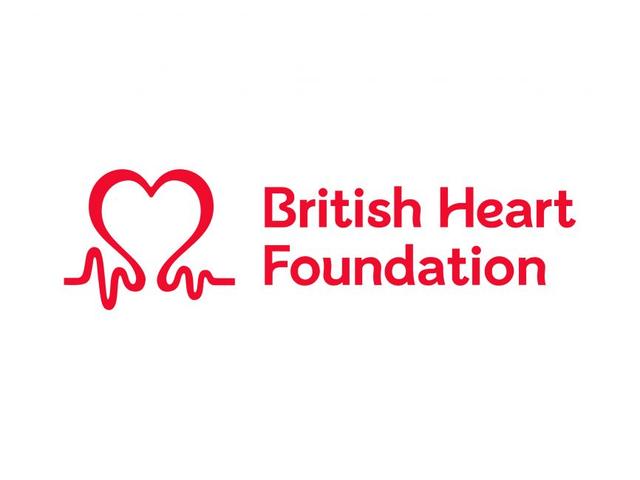
Atrial fibrillation explained
Peer reviewed by Dr Jim Forrer, MRCGPAuthored by Lawrence HigginsOriginally published 28 Feb 2025
- DownloadDownload
- Share
Atrial fibrillation is when your heartbeat is usually irregular and too fast. Here we look at what can cause it, the symptoms, and the treatment you may receive if you have it.
Sponsored
British Heart Foundation
This feature is sponsored by the British Heart Foundation - the biggest funder of research into heart and circulatory diseases in Europe.
The content follows the Patient editorial policy.

In this article:
Continue reading below
What is atrial fibrillation?
Atrial fibrillation (AF) is when the upper chambers of your heart (atria) do not beat in a regular rhythm. Any irregular heart beat can be called an 'arrhythmia'. The irregular heart beat is often too fast, but sometimes is normal, or too slow.
It can go away on its own, but if it is not treated it increases your risk of blood clots, having a stroke, heart failure, and other heart-related conditions.
There are three main types of AF, these are:
Occasional or paroxysmal - symptoms come and go suddenly and usually stop without treatment.
Persistent - lasts longer than seven days and usually requires treatment.
Permanent – lasts long-term. Treatment can help bring the heart rate back down, but the rhythm remains irregular.
Causes of atrial fibrillation
AF can be caused by several factors, including heart disease, health conditions, and lifestyle. For some people there is no apparent cause.
The main causes of AF include:
Heart disease – such as heart attack, heart failure and coronary heart disease.
Other health conditions - such as high blood pressure and diabetes.
Medicines you take for your health conditions – such as asthma inhalers.
Lifestyle – such as drinking too much alcohol or living with obesity.
Your chance of having AF can also increase due to factors outside your control such as your age, sex, or having a family history of the condition.
Continue reading below
Symptoms and signs of atrial fibrillation
Some people who have AF say it feels like their heart is fluttering or pounding hard. Many have no symptoms at all and may only find out when they are having other tests, or their heartbeat is being checked.
Symptoms usually start suddenly - the main ones include:
Heart fluttering, thumping or pounding more than usual (palpitations) - this may last for several seconds or hours.
Chest pains (angina) or a feeling of chest tightness.
Irregular heartbeat.
Feeling very tired
Feeling short of breath, dizzy or faint.
How long your symptoms last will depend on the type of AF you have.
What to do if you think you’re having a heart attack.
If you have symptoms of a heart attack:
Call 999 for an ambulance straightaway.
Open the front door and leave on the latch so that the ambulance crew can gain access.
Take one 300mg aspirin tablet if you have it and you're not allergic.
Sit down and stay calm and wait for the ambulance. Do not drive yourself to hospital.
Act straightaway - the longer you wait the more likely you are to suffer serious heart damage or die.
How atrial fibrillation is diagnosed
To diagnose AF, your doctor or health care professional will check your pulse and ask questions about your general health and symptoms. They will then arrange for a heart tracing (ECG) to accurately record the rate and rhythm of the heart. If they think you have AF you may be offered a consultation with a specialist for further tests and treatment.
These tests include:
Echocardiogram
Similar to a pregnancy scan, sound waves show how blood is flowing through your heart as well as looking at the valves and structures of the heart.
Electrocardiogram (ECG)
An ECG is the main test for diagnosing AF. Electrodes are stuck onto your chest, arms and, legs to record your heart rate and rhythm and its electrical activity.
Other types of ECG tests include:
Implantable loop recorder – a small device is placed under the skin and records your heartbeat continuously for up to 3 years. It's also called a cardiac event recorder.
Continual ECG recording - also called a Holter monitor. This small portable device records your heart’s electrical activity for one to seven days, while you go about your day-to-day activities.
Exercise ECG – records your heart activity while you're walking on a treadmill or pedalling an exercise bike to show how your heart reacts to exertion. If you have difficulty exercising, you may be given medicine that increases your heart rate as though you were.
You may also be offered blood tests and a chest x-ray to look for any other health conditions affecting your heart.
Checking your pulse or heart rate at home
As some people have no symptoms, AF is sometimes picked up when you have an unrelated health check-up – often when having your pulse checked. You can check your pulse easily at home though.
To check your pulse, rest and avoid caffeine for around 30 minutes beforehand, then:
1. Sit down and lightly press the tips of your index and middle finger on the inside of your wrist, below your thumb.
3. Count your pulse for 30 seconds
4. Double the number of beats you feel to get your heart beats per minute.
A normal healthy pulse rate is between 60 – 100 bpm when resting, with AF it can be from 100 - 200.
You can also buy your own ECG machine to check your heart yourself. BHF has a range of home and portable ECG monitors which give professional quality ECG readings, in just 30 seconds.
Treatment for atrial fibrillation
Sometimes AF does not require treatment. If treatment is necessary, the options open to you will depend on factors such as the type of AF you have and your general health.
The main treatments include:
Medicines
You may be offered medicines – such as beta blockers - to help slow down and regulate your heartbeat. You may also be offered medicines to help prevent related conditions such as blood clots or stroke (anticoagulants).
Surgery
There are different types of surgery that you could be offered, the most common are:
Ablation – burns or freezes part of your heart to deactivate the area that's causing the AF.
Electrical cardioversion – uses electricity to reset your heartbeat to a regular rhythm.
Pacemaker – implanted in your chest to regulate your heartbeat after some forms of ablation.
If your AF is caused by another health condition, then that will be treated and should help ease the symptoms.
Continue reading below
Living with atrial fibrillation
As well as any treatment you may receive for AF, there are several lifestyle changes you can make to help keep your heart healthy and reduce the chances of further complications. These include:
Keeping your weight at healthy levels.
Exercising regularly.
Looking after your mental wellbeing.
Taking your medicines when you should.
Drinking within safer alcohol limits.
Managing your blood sugars.
Managing high blood pressure.
If you have any questions about your treatment, or any other heart health issues, British Heart Foundation can help. Speak to one of BHF’s experienced cardiac nurses, access expert web content, and find peer support at bhf.org.uk/questions.
Article history
The information on this page is peer reviewed by qualified clinicians.
Next review due: 28 Feb 2028
28 Feb 2025 | Originally published
Authored by:
Lawrence HigginsPeer reviewed by
Dr Jim Forrer, MRCGP

Ask, share, connect.
Browse discussions, ask questions, and share experiences across hundreds of health topics.

Feeling unwell?
Assess your symptoms online for free